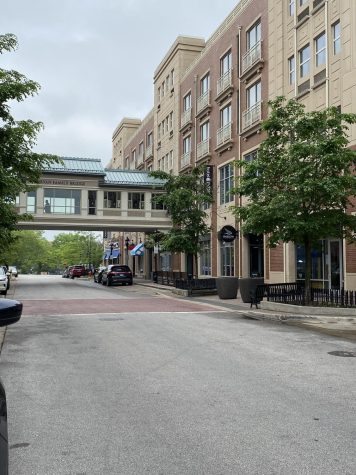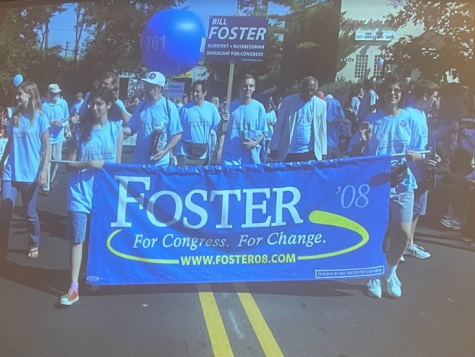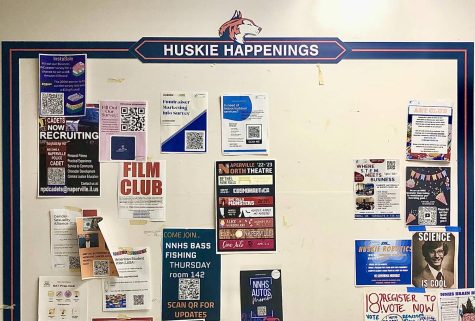Corporate college financial assistance: is it worth it?
Photo by Jack Zievers
In the midst of college applications, many high school seniors are burdened with questions of not only where they will go, but also if they will be able to afford their post-secondary education. A number of corporations advertise an answer for this. From McDonalds to Starbucks and Walmart to Target, corporations across the country say that they are willing to provide their employees with financial aid to assist them in their pursuit of a higher education. This may seem too good to be true. But what are the benefits? Are the opportunities readily available? Is it really worth your time? Let’s take a look.
College-bound students across the country are applying for the Federal Application for Free Student Aid (FAFSA) and may be looking to earn aid in scholarships through the universities that they are applying to. A lesser known vessel of financial aid, however, is through employers’ sponsored aid. Many corporations across the country have been known to provide aid to their employees who are working towards a post-secondary degree.
Peter Cappelli, a professor of management at the University of Pennsylvania, acknowledged that many corporations have the means to provide financial support to undergraduate students. Actually obtaining a scholarship, though, is not necessarily simple.
“Typically, one has to work there for a while. The employers tell you what colleges and what programs they will pay for and also how much they will pay. Sometimes they require a certain GPA or they won’t pay for them,” Cappelli said.
Cappelli continued to point out that these corporate programs are sustainable because of the difficulty employees have in actually reaping the benefits.
“It costs very little because few people are able to make use of it – this is going to school in addition to a full-time job. It seems to attract better quality applicants, and they stick around long,” Cappelli explained.
Corporations understand that many undergraduate students do not have the time to both pursue their education as well as work part time jobs. As a result, this keeps the amount of money going to financial aid low because the student-employees are believed to be few and far between. The companies expect those who work along with pursuing their education to be higher quality workers who will work long-term at that particular establishment.
Students also remain uncertain as to whether the amount of financial aid is really worth it. Judd Chamberlain, a senior at Naperville Central High School and employee at McDonald’s, weighed in with the belief that out-of-state education prices would not be offset by much with aid from the McDonald’s program, Archways to Opportunity.
“I’m looking at a lot of schools that are not in the state, which are going to end up being very expensive. In that context, $2,500 is not a lot of money,” Chamberlain said.
Chamberlain acknowledged that although the sum provided by McDonald’s is not extremely beneficial, the combination of that money and other potential scholarships a university may offer real benefits.
“If you’re applying for a bunch of scholarships and then you’re getting the McDonald’s scholarship for $2,500, it’ll add up and then it’ll ultimately be cheaper. So yes, I do think it’s a great idea, and it’ll definitely help,” Chamberlain said.
Chamberlain explained that while the programs are readily available for employees, they are not clearly advertised and must be pursued through management.
“No one contacted me, but I reached out to my manager and asked, ‘Will I be eligible for this?’” Chamberlain said.
While Chamberlain was on leave for extracurricular activities, he confirmed that as soon as he returned to work, he would be able to apply for financial aid.
“I’m currently not employed. I’m not a [shift] lead. So I do need to be employed to apply for it. [My boss] said, ‘when you come back, you’ll be eligible to apply and sign up for it,’” Chamberlain said.
While financial aid from corporations in addition to aid from the FAFSA and college scholarships can provide an excellent means of funding college education, Cappelli said that by receiving corporate financial aid, students can limit the aid that the schools themselves will provide.
The question becomes whether students themselves view aid from corporations as beneficial. While some companies may have generous financial aid programs, the difficulty of applying and obtaining aid along with the combined stresses of college still exists. Chamberlain expressed an excitement about large sums of aid, but cynicism at the terms that may apply.
“If Target wants to pay for my entire college tuition just for working there, I feel like I’d quit McDonald’s and go work somewhere that would do that because that would be awesome. But I feel like there’s definitely some twists and hoops you’ve got to jump through to get a full tuition,” Chamberlain said.

Jack Zievers is a senior at Naperville North High School who looks forward to beginning as a reporter for The North Star. Jack aims to expand his writing...











